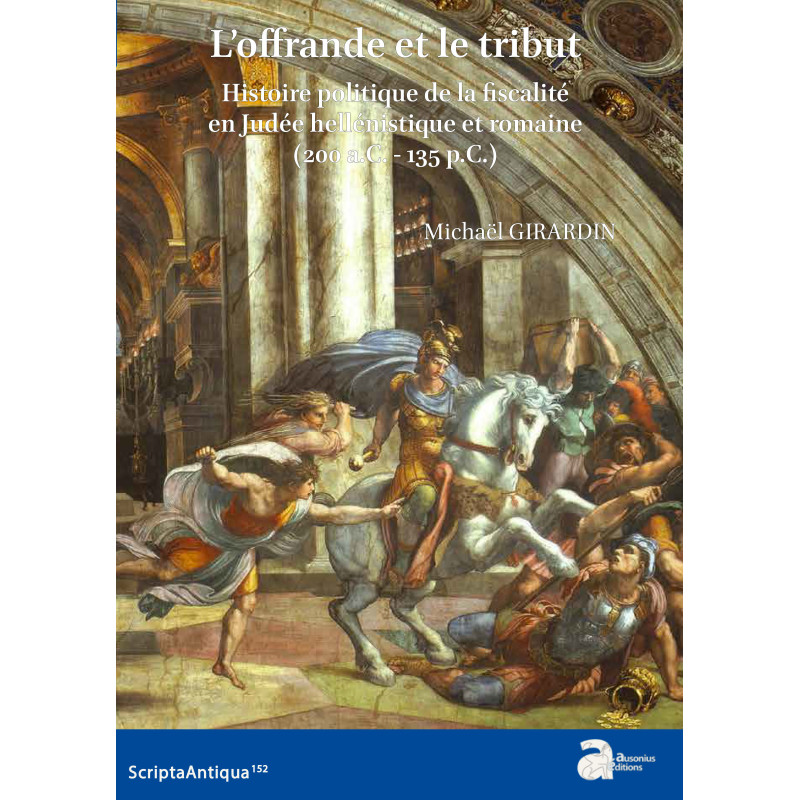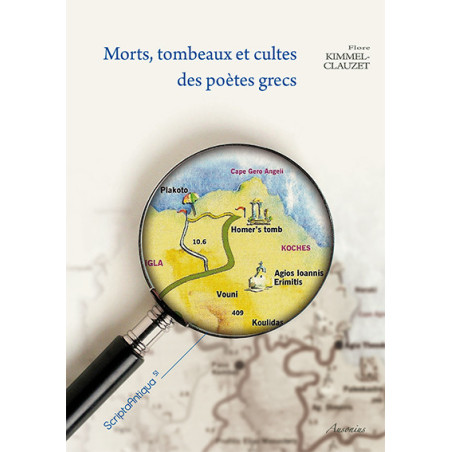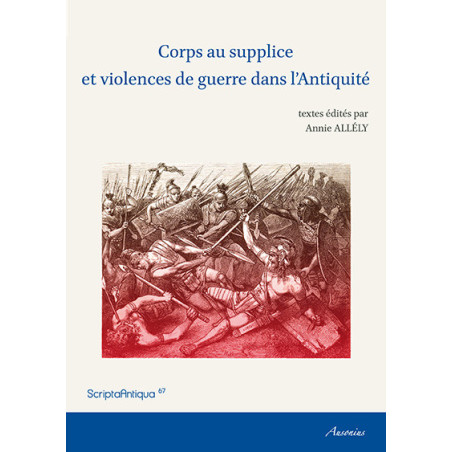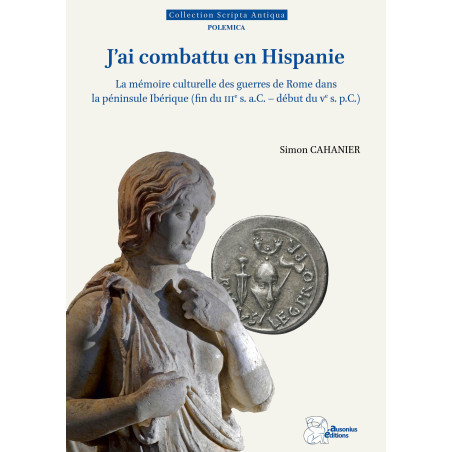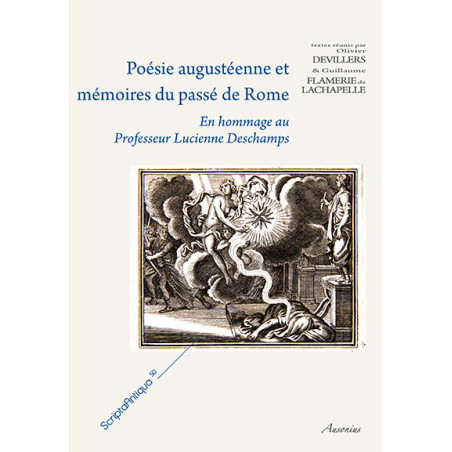Scripta Antiqua 152
L’offrande et le tribut Histoire politique de la fiscalité en Judée hellénistique et romaine (200 a.C. - 135 p.C.)
Foreign taxes were hated in Judaea, it seems, by a people proud to pay from its funds the cult of the temple of Jerusalem. Such an idea, widespread as it is in historiography, indeed finds its roots inside the ancient sources, but is it historical? Exploring various sources and recent discoveries (texts from the literary tradition, Dead Sea Scrolls, coins, inscriptions, archaeological remains) and borrowing from transdisciplinary methodology (sociology, social psychology, fiscal law), this book aims to study taxation in Hellenistic and Roman Judaea as a fundamental part of political history of the region. Since taxes are a marker of domination, a few Jewish groups wondered whether it was permitted to pay tribute to foreign master while they already paid a compulsory offering to God. However, such a discourse was multiform, it was not universally shared and changed according to groups and conjunctural evolutions, sometimes visible, sometime invisible following historical events. Moreover, far from being consubstantial to Ancient Judaism, this idea was the product of a political instrumentalization, a rhetorical tool used in order to motivate people to insurrection. Born at the time of Maccabees, it was inherited in more or less radical ways by diverse schools in the Roman era. Yet, on the other hand, it is nowhere to be seen beyond speeches, even those most hostile to tribute raised taxes after taking power, using the former tribute to their own advantage. By confronting this omnipresence of anti-tax protest in the speeches, with the data on the actual taxation during this period, this book sheds light on the distance between politics and everyday life and endeavours to bring into question some well-accepted elements. For instance, that the tribute was oppressive, that population was impoverished by the foreign exploitation of resources, or that the masters of the region only searched their interests and not the consent of the taxpayers.
On the same subject
Scripta Antiqua 67
Corps au supplice et violence de guerre dans l'Antiquité
Publication date :01/01/2014
Scripta Antiqua 50
Poésie augustéenne et mémoires du passé du Rome. En hommage au Professeur Lucienne Deschamps
Publication date :01/01/2013
